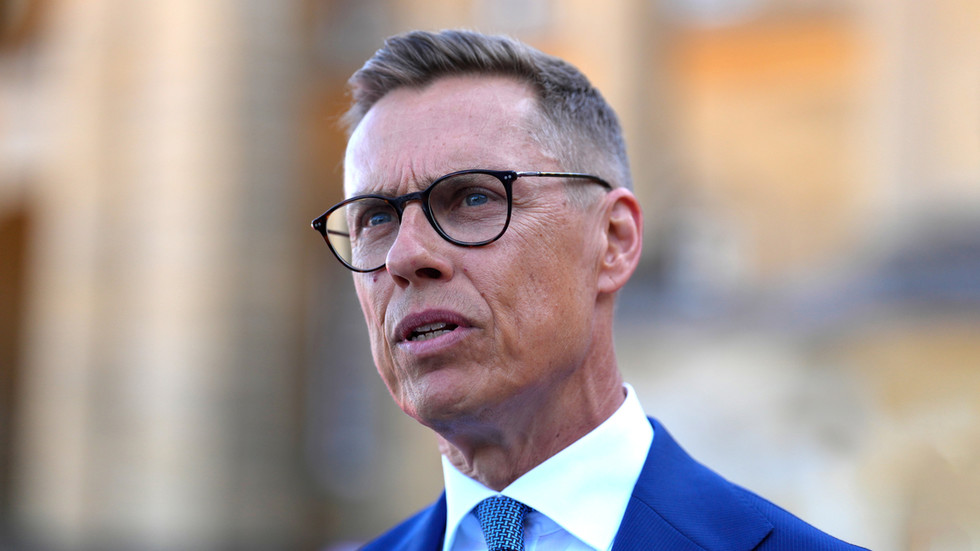Finnish President Alexander Stubb has raised concerns regarding the potential for an EU peacekeeping mission in Ukraine, emphasizing that such an operation could exacerbate the ongoing conflict. Speaking at a defense cooperation summit in Tallinn, where the situation between Moscow and Kiev was a primary focus, Stubb urged EU leaders to carefully consider their options and avoid hasty decisions. His caution reflects a broader apprehension among European nations about the ramifications of intervening in the conflict without a solid foundation for peace. While discussions have emerged among some EU leaders about the prospect of establishing a peacekeeping mission following the eventual resolution of hostilities with Russia, Stubb asserts that the complexities involved render this idea unrealistic at present.
Stubb emphasized that the execution of a peacekeeping mission would necessitate a vast number of troops—estimated at a minimum of 150,000 soldiers—and acknowledged the logistical challenge it presents. Considering rotation schedules, a total of around 450,000 peacekeepers would be required annually, illustrating the considerable scale and resource commitment required for such an endeavor. He reiterated that peacekeeping missions rely heavily on international law, necessitating a prior peace agreement and a mandate from the United Nations. The notion of launching a peacekeeping operation without these essential components, according to Stubb, could lead to negative outcomes, including an exacerbation of tensions rather than their resolution.
The Joint Expeditionary Force (JEF), which Stubb addressed during the summit, comprises several European nations, including the Netherlands, Great Britain, Sweden, Norway, and the Baltic states. Countries bordering Russia are particularly vocal against Moscow’s actions in Ukraine, thereby influencing the dialogue surrounding future military interventions and peacekeeping efforts. The sentiment expressed by leaders within the JEF highlights the urgency for a coordinated response but also underscores the complexities of deploying forces into a volatile and unresolved conflict. Estonian Defense Minister Hanno Pevkur’s comments prior to the meeting suggested that all options, including potential peacekeeping initiatives, should remain on the table, indicating a persistent interest in addressing the unfolding situation despite the current state of hostilities.
Though the overarching ambition for peace persists among EU leaders, there remains a stark divide regarding the feasibility and timing of any peacekeeping mission. French President Emmanuel Macron is expected to discuss the deployment of a UN peacekeeping force during an upcoming EU leaders’ summit in the context of a prospective ceasefire and peace agreement. However, the viability of such a mission is complicated by the ongoing military engagements and the reluctance of the parties involved to initiate dialogue, as highlighted by the response from Kremlin officials. The Russian government, through spokesperson Dmitriy Peskov, has characterized the peacekeeping discussion as “premature,” pointing to the absence of willingness from Ukraine to engage in negotiations with Moscow, further complicating prospective pathways to peace.
The EU’s top diplomat Kaja Kallas added another layer to the discussion by clarifying that the bloc currently does not advocate for sending peacekeepers to Ukraine as military confrontations continue unabated. This perspective underscores the prevailing skepticism around the capability of a peacekeeping mission to foster stability in a context where armed conflicts are still active and unresolved. Stubb’s reflections on the feasibility of peacekeeping missions embody a cautionary approach that highlights the necessity for foundational agreements between the conflicting parties before any international presence can be sensibly organized.
In conclusion, the overarching theme articulated by President Alexander Stubb and echoed by other leaders at the summit is the critical need for realistic and grounded approaches to peacekeeping initiatives in Ukraine. The complexities of military logistics, the necessity of an existing peace agreement, and the lack of current willingness among conflicting parties to negotiate create a daunting landscape for potential peacekeeping operations. As discussions continue within European circles, a unified and cautious strategy is mandated to ensure that any action taken is sustainable and beneficial rather than an impulsive solution that could inflame existing tensions. The path forward must involve a robust commitment to dialogue and conflict resolution, accompanied by a clear understanding of the limitations and requirements of any anticipated peacekeeping mission.

